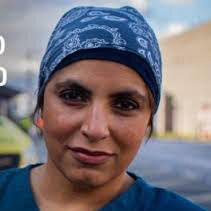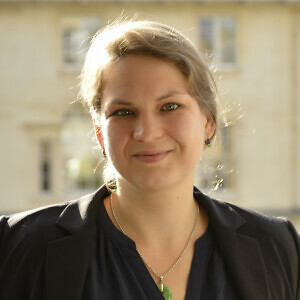- About
- Convenors
- Programme 2023 - 2024
About
As spaces – both in the literal and the figurative sense – of exception, conflict zones tend to create vulnerable settings, particularly for healthcare and medicine. Conflict in the 21st century increasingly focuses on the purposeful destruction and destabilisation of civil society, making non-combatants a main target. It is characterised by disregard for the rules of war, international humanitarian law and human rights. Thus, conflicts have a tremendous impact on healthcare provision and access to healthcare. Medical issues in conflict zones range from non-communicable diseases, communicable diseases, traumatic injuries, mental health issues to issues related to maternal, women’s, and child health. The specific dynamics of each of the issues and the countless conditions they cover can be vastly different. However, the effect that humanitarian emergencies have on these medical issues is similar and the main mechanisms through which humanitarian emergencies have these detrimental effects are the same. One of the key problems that humanitarian emergencies pose is the destruction of health infrastructure, coupled with a lack of health care workers (HCWs) and the potential for increased physical danger to HCWs, as well as limited access to essential medicines. Some issues are further exacerbated. Humanitarian emergencies can directly cause both physical and mental injury, such as blast injuries, injuries linked to debris or inadequate shelter, gunshot wounds and post-traumatic stress disorder. Additionally, humanitarian emergencies can trigger risk factors and risk factor cascades that significantly increase the risk of communicable disease outbreaks.
To give a glimpse of the vast implications of conflict and crises resulting from conflict on health and healthcare it is worth revisiting the Rwanda crisis of 1994, which remains one of the most pivotal humanitarian crises of the last 50 years. Not only was the underlying conflict of a devastating nature but the initial response and lack of coordination also led to additional preventable deaths and in turn to an overhaul of the humanitarian system. Refugees fleeing from violence in Rwanda towards Zaire – now the Democratic Republic of the Congo – experienced extreme rates of mortality during the summer and autumn of 1994. In early July, a cholera outbreak swept through the refugee population and before the end of this outbreak a shigella dysentery outbreak compounded the situation. Estimates of mortality vary widely, but it is estimated that at the height of the crisis, between 58,000 and 80,000 persons died within the span of one month in a situation of uncoordinated humanitarian response and extremely limited healthcare access.
Why an interdisciplinary network?
The result of the 1994 Rwanda (reponse) crisis have been the development of the Sphere standards and humanitarian charter, and United Nations Cluster response system, all of which acknowledge the interdisciplinary, multi-sectoral nature of response. Similarly, threads towards healthcare in conflict are varied and response, prevention and preparedness in the context of healthcare in conflict cannot be limited to traditional epidemiological and medical concepts but have to be seen as more holistic and transdisciplinary activities that promote conditions that are less advantageous to health risks. They have to draw on disciplines as varied as medicine, epidemiology, sociology, international relations, law and others while also involving practitioners and stakeholders from all of these disciplines, civil society, military, media, healthcare and other stakeholders. Equally, the study of healthcare in conflict has to be and is interdisciplinary in nature. While this can be seen as a strength and even a necessity, this interdisciplinarity also comes with risks, especially in a setting such as Cambridge. An interdisciplinary network, open to all faculties and departments, allows us to break down barriers and explore the wide landscape of individuals and groups working on issues related to healthcare in conflict across and beyond the Cambridge ecosystem, building synergies and learning from each other to ultimately deliver both better and more integrated research as well as response.
Supported by CRASSH
Convenors
Convenors
- Saleyha Ahsan (Emergency medicine doctor and a current PhD student, Department of Sociology)
- Elsa Kobeissi (PhD candidate Epidemiology, University of Cambridge)
- Alisha Maycock (MPhil student in population Health Sciences)
- Tads Ciecierski-Holmes (Graduate-entry medical student and Economics graduate, University of Cambridge)
About the convenors

Saleyha Ahsan is an emergency medicine doctor and a current PhD student examining the impact of attacks against healthcare in armed conflict, at the University of Cambridge. Saleyha has an LLM in International Human Rights and Humanitarian Law from the University of Essex, where she studied in depth the Law of Armed Conflict and conducted her research essays in the area of attacks against healthcare in war. Saleyha is also a former British Army officer, commissioned into the Royal Army Medical Corps as a non-medical support officer. She deployed to Bosnia with the NATO Stabilisation Force which is where her interest and commitment to the subject of healthcare access in hostilities began. She has worked as a doctor, filmmaker and freelance journalist (BBC, Channel 4, ITN, Guardian, New Statesman, World Report – Chatham House) for 20 years, reporting and working from conflict settings which include Libya, Syria, Palestine, DR Congo, Jordan and Kashmir. She is a trustee for Action on Armed Violence, the Scottish Documentary Institute and Internews Europe. Saleyha was awarded an honorary degree in recognition of her work in global and humanitarian health and health communication from the University of Dundee, her alma mater. She is currently a moderator on the MSF Global Health and Humanitarian Medicine course.

Elsa Kobeissi is currently pursuing her PhD in Epidemiology at the University of Cambridge. She holds a Bachelor’s degree in Pharmacy from the Lebanese American University and a Master of Public Health from Imperial College London (ICL).
After completing her studies, Elsa worked as a data analyst for the May Measurement Month campaign at ICL, in collaboration with the International Society of Hypertension. She also contributed to the Oxford Global Burden of Disease project at the Big Data Institute, University of Oxford.
Before embarking on her PhD journey, Elsa worked as a research associate at the Global Health Institute, American University of Beirut. In this role, she conducted a study examining the socioeconomic burden of antimicrobial resistance in conflict settings and drafted policy reports on the roadmap for relaxing COVID-19 control measures. Additionally, she investigated the short- and long-term burden of war injuries in low- and middle-income countries, using the 2006 war in Lebanon as a case study, as part of the NIHR Global Health Research Group on Post Conflict Trauma; PrOTeCT.
Alisha Maycock is studying for an MPhil in Population Health Sciences, specialising in global health and writing her thesis on infant feeding in conflict and disaster zones. Previously, Alisha completed her bachelor’s in Social Anthropology and Linguistics at the University of Manchester, with her thesis focused on the representation and lived experience of severe injury for soldiers wounded in the Iraq and Afghanistan wars. She also has an MSc in Medical Anthropology from the University of Oxford, with her dissertation exploring the experience of perpetual crisis for people experiencing homelessness and addicted to the new-synthetic cannabinoid, ‘spice’. Following her current MPhil, Alisha aspires to work in humanitarian aid, working on the ground to deliver healthcare and assist people in a culturally aware way, combining her anthropological, linguistic and public health training.
Tads Ciecierski-Holmes, is a graduate-entry medical student and Economics graduate from the University of Cambridge. Outside of his degree, he contributes to public health research projects and competes as a Modern Pentathlete. His research focuses on the evaluating the efficacy and cost-effectiveness of health-related programmes, including AI use-cases in LMICS, social health insurance enrolment in India, and antenatal couples counselling in primary-care settings in Uganda. He is interested in the barriers and facilitators to accessing healthcare in low-resource settings globally, and the use of predictive tools to better target interventions that aim to change health-related behaviours. Through his involvement in CRASHH Healthcare in Conflict, he hopes to contribute to important conversations about protecting and improving healthcare provision and access in conflict zones.
Previous convenor and co-founder

Dr Charlotte Hammer (MT 2023 to LT 2024) is an applied infectious diseases epidemiologist. Her research focuses on emerging and high-consequence infectious diseases, particularly on risk assessment, early warning and rapid response to the human-animal-environment-interface. Additionally, she is interested in risk factors for and early detection of infectious disease outbreaks in complex and fragile settings such as humanitarian emergencies or peri-urban informal settlements. Aside from her academic work, she also maintains a strong involvement in applied infectious diseases public health practice, particularly in outbreak response and epidemic intelligence with organisations such as the World Health Organization and the Global Outbreak Alert and Response Network as well as curriculum design and teaching for Field Epidemiology Training Programs worldwide, currently including in the EU, the Mediterranean and Black Sea countries and Vietnam. Charlotte completed her PhD in the Health Protection Research Unit for Emergency Preparedness and Response on outbreak risks in humanitarian emergencies. After her PhD, she worked as an epidemiologist with the European Field Epidemiology Training Program. During that time, she was involved in the COVID-19 response in the European Union and Papua New Guinea as well as the Ebola response in the North-Eastern DRC.
Faculty advisors
- Caroline Trotter (Professor of Global Health, Department of Pathology, University of Cambridge)
- Tom Bashford (Assistant Professor in Healthcare Systems, Engineering, University of Cambridge)
Programme 2023 - 2024
Easter term 2024
| Healthcare in Conflict |
|---|
|
Healthcare in conflict with Toby Cadman & Jack Sproson 9 May 2024 17:00 - 19:00, SG1, Alison Richard Building, 7 West Road, Cambridge, CB3 9DP Toby Cadman ( Guernica 37 Group), Jack Sproson (Guernica 37 Group) |
|
Surgery and surgical research in conflict settings 30 May 2024 17:00 - 19:00, SG1, Alison Richard Building, 7 West Road, Cambridge, CB3 9DP Carlos Pilasi Menichetti (Hospital in Birmingham), Michael Bath (Cambridge) |
Lent term 2024
| Healthcare in Conflict |
|---|
|
Outbreaks simulation in conflict settings 18 Jan 2024 17:00 - 19:00, Room SG1, Alison Richard Building, 7 West Road, Cambridge ‘One Health’ outbreak investigation workshop |
|
Health in conflict journal club 25 Jan 2024 17:00 - 19:00, Meeting room, Ashby Lab, Department of Engineering, Trumpington Street, Cambridge CBZ 1PZ Reading group |
|
Keeping the lights on and the taps running: the role of an engineer in conflict 1 Feb 2024 17:00 - 19:00, Online & Room SG1, Alison Richard Building, 7 West Road Emma Houiellebecq (TBC) |
|
Health in conflict journal club 8 Feb 2024 17:00 - 19:00, Meeting room, Ashby Lab, Department of Engineering, Trumpington Street, Cambridge CBZ 1PZ Reading group |
|
Health systems in conflict 15 Feb 2024 17:00 - 19:00, Online & Room SG1, Alison Richard Building, 7 West Road, Cambridge Laura Hobbs (Cambridge), Tom Bashford (Cambridge) |
|
Health in conflict journal club 22 Feb 2024 17:00 - 19:00, Online Reading group |
|
POSTPONED Healthcare in conflict 29 Feb 2024 17:00 - 19:00, Online & Room SG1, Alison Richard Building, 7 West Road TBC |
|
POSTPONED: Health in conflict journal club 7 Mar 2024 17:00 - 19:00, Meeting room, Ashby Lab, Department of Engineering, Trumpington Street, Cambridge CBZ 1PZ Reading group |
|
CANCELLED 14 Mar 2024 17:00 - 19:00, Online & Room S1, 1st floor, Alison Richard Building, 7 West Road TBC |
|
The challenges of delivering healthcare and telling the story in a warzone 21 Mar 2024 20:00 - 21:45, Cambridge Union Society, 9A Bridge Street, CB2 1UB Film screening and talk |
|
How to confirm an outbreak: a workshop for budding disease detectives 23 Mar 2024 13:00 - 14:00, Room SG1, Alison Richard Building, 7 West Road, Cambridge CB3 9DT |
Michaelmas term 2023
| Healthcare in Conflict |
|---|
|
POSTPONED Landscape mapping: who is doing research related to healthcare in conflict in Cambridge? 12 Oct 2023 17:00 - 19:00, Room SG1, Alison Richard Building, 7 West Road, Cambridge Saleyha Ahsan (Cambridge), Charlotte Hammer (Cambridge) |
|
Zoonotic and all – causes infectious disease outbreak risks in conflict settings 26 Oct 2023 17:00 - 19:00, Online & Room SG1, Alison Richard Building, 7 West Road, Cambridge Dorien Braam (Cambridge), Charlotte Hammer (Cambridge) |
|
Understanding the weaponisation of healthcare and the impact of attacks against healthcare in conflict settings 9 Nov 2023 17:00 - 19:00, Online & Room SG1, Alison Richard Building, 7 West Road Sean Hudson (KCL), Saleyha Ahsan (Cambridge) |
|
Medecin Sans Frontier in the conflict field and the role of research in deployments 23 Nov 2023 17:00 - 19:00, Online Carlos Pilas (MSF) |
|
Landscape mapping: who is doing research related to healthcare in conflict in Cambridge? 30 Nov 2023 18:00 - 20:00, Lucia Windsor Room, Newnham College, Cambridge CB3 9DF Saleyha Ahsan (Cambridge), Charlotte Hammer (Cambridge) |
|
POSTPONED The role of emergency planning on deployments in conflict settings and an insight into fieldwork methods in crisis settings 15 Dec 2023 17:00 - 19:00, Online Darryl Stellmach (Tasmania) |

